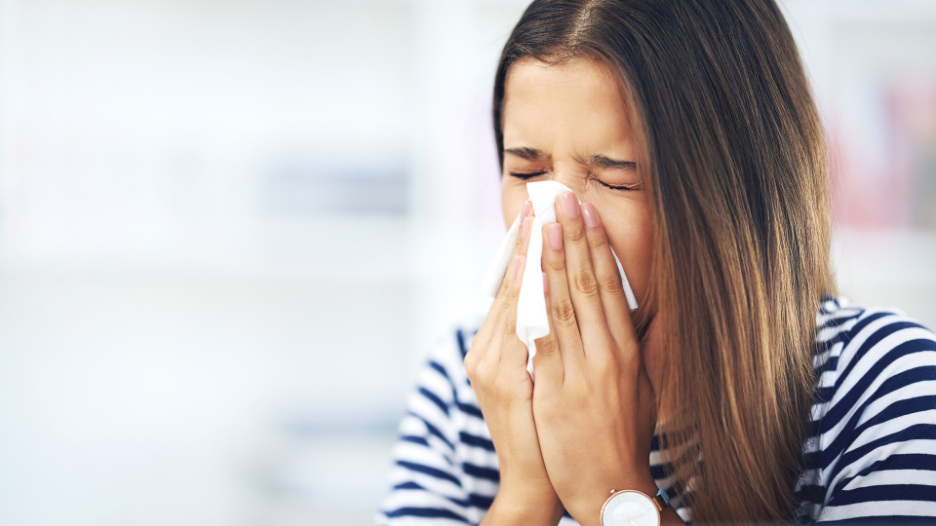
How CityMD can help this allergy season
If you are one of the millions of people who suffer from seasonal allergies, you may currently be experiencing a flare-up in symptoms. Summer is almost here, but allergy season is still in full swing in New York City and beyond.
Are you tired of sneezing, itching, coughing, and feeling like you're constantly battling pollen and dust? And to make matters worse, if you suffer from asthma your allergy symptoms could be causing symptoms like coughing or wheezing to get worse.
“While seasonal allergies and asthma can be challenging to manage, there are many resources available to help patients in New York City and elsewhere, especially during certain times of the year,” says Anne Marie Nolan, DO, an urgent care physician at CityMD. “By visiting your local urgent care location, our physicians can help you take steps to minimize your exposure to allergens, alleviate your symptoms, and enjoy a healthier quality of life.”
Here are some practical tips to help you get comfortable this allergy season. And if you need relief from allergy or asthma symptoms simply walk right into your neighborhood CityMD location for fast evaluation and treatment.
When is allergy season?
The timing can vary depending on where you live and what allergens you're sensitive to. For many people, springtime takes the crown as the prime allergy season as flowers bloom and trees release pollen.
But don't breathe a sigh of relief just yet. Allergies can also strike during other seasons. In the summer, grass pollen and mold spores can wreak havoc on sensitive individuals. When fall arrives, ragweed pollen takes center stage, leaving many people sniffling.
The bottom line? It depends on the individual. Stay informed about the allergens that affect you and the seasons when they are most active so you can make a plan to avoid triggers and best manage your symptoms.
What are common allergens?
There are many types of allergens. One of the most common allergens in New York City is pollen, which is produced by trees, grasses, and other plants.
“During the spring and summer months, pollen levels can be remarkably high, leading to symptoms like sneezing, runny nose, and itchy eyes,” explains Dr. Nolan. “For people with asthma, exposure to pollen can also trigger wheezing, coughing, and shortness of breath.”
Another common allergen in the city is mold, which can grow in damp environments like basements and bathrooms. Mold spores can be released into the air and cause symptoms similar to pollen allergies. In addition, air pollution from cars, factories, and other sources can exacerbate both allergies and asthma, Dr. Nolan adds.
How to remove allergens from the home
There are several steps patients can take to manage seasonal allergies and asthma symptoms. First, it is important to avoid exposure to allergens as much as possible. This might mean staying indoors during high pollen or pollution days, using air filters in your home, and keeping windows closed, explains Dr. Nolan.
Your home should be free from any allergic triggers. Here are some tips on how to remove allergens from your living space.
- Dust off your cleaning skills. Dust mites are notorious culprits when it comes to indoor allergies. They can easily bring on asthma symptoms. Regularly dusting surfaces, vacuuming carpets and upholstery, and washing bedding in hot water (at least 130°F) can help eliminate these microscopic troublemakers. Don't forget to wear a mask while cleaning to minimize your exposure to dust particles.
- Keep the air fresh and clean. Invest in a high-quality air purifier with a HEPA (High-Efficiency Particulate Air) filter. These devices work tirelessly to capture allergens like pollen, pet dander, and mold spores from the air, leaving you with cleaner and fresher indoor air quality.
- Banish pet dander. We love our furry friends, but their dander can be a major allergy trigger. Regularly grooming and bathing your pets can help reduce the number of allergens they carry. It's also a good idea to keep them out of bedrooms and off furniture to create pet-free zones.
- Mold no more. Moisture is a magnet for mold, so keep your home well-ventilated and dry. Fix any leaks or water damage promptly, use dehumidifiers in damp areas, and regularly clean bathroom surfaces.
- Get rid of clutter. Clutter not only collects dust but can also make cleaning more challenging. Keep your living spaces clutter-free and organized to minimize dust build-up and create an allergy-friendly environment.
Remember, tackling allergens in your home is an ongoing process. By implementing these strategies and staying consistent with your cleaning routine, you'll create a healthier and more comfortable space that supports your fight against allergies.
Allergy treatment at CityMD: relief is just around the corner.
Don't let allergies and asthma hold you back this season. With over 170 locations open 365 days a year, we're here to help you breathe better and find relief.
Walk right into your neighborhood urgent care for any of your asthma or allergy needs including:
- Rapid evaluation for asthma and allergy attacks
- Treatment options such as antihistamines, oral, or injectable steroids
- Medication refills of nebulizers or inhalers
- Referrals to specialists in allergy and immunology or pulmonology if you need follow-up care
So don’t worry the next time your allergies or asthma flares up. Your local CityMD urgent care can help you manage your allergies and get you feeling more comfortable fast — just stop in allergy and asthma relief is a visit away.

We’re ready to care for you.
Visit any CityMD urgent care location in your community today for an evaluation with one of our expert providers.